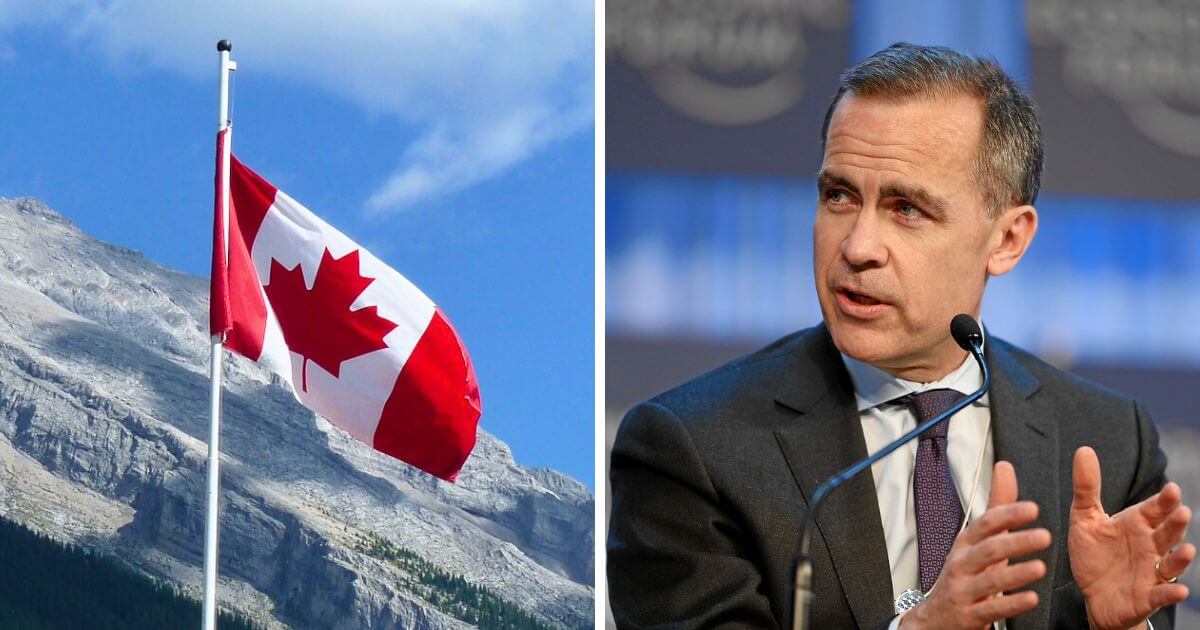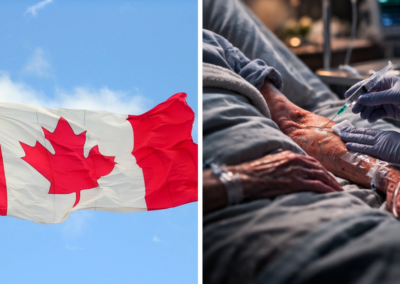The decision of the Canadian government to abolish a government ministry for people with disabilities has been blasted as “a real slap in the face”, coming at the same time as the country’s euthanasia and assisted suicide programme continues to expand.
When Prime Minister Mark Carney announced his new cabinet, it was noted that no minister with responsibility for people with disabilities had been appointed. The post, which had previously been held by Kamal Khera, was abolished, and people with disabilities have shared their dismay and disappointment about the decision, as plans to expand Canada’s euthanasia and assisted suicide programme continue.
Decision blasted as “a real slap in the face to eight million people with disabilities in Canada”
Disability rights professor David Lepofsky, who is blind, said “For the prime minister to do this is a real slap in the face to eight million people with disabilities in Canada”. Lepofsky also said the decision is a sign to people with disabilities that they are not a priority.
Rabia Khedr, National Director of Disability Without Poverty, echoed Lepofsky’s sentiments, saying “Not having big and bold disability inclusion and accessibility as part of a ministerial portfolio headline sends a message. Unfortunately, people with disabilities are being left behind”.
Disability campaigner Donna Jodhan also referred to the priorities of the new administration, saying the “omission speaks volumes about where Canadians with disabilities now stand on the government’s priority list”.
Commenting on the omission, pro-life campaigner David Cooke criticised the Canadian government for “prioriti[s]ing euthanasia over improving medical and social supports for this vulnerable and marginali[s]ed group”.
Canada’s latest official report on its euthanasia and assisted suicide programme, Fifth Annual Report on Medical Assistance in Dying in Canada 2023, showed that 58.3% of people who died by euthanasia and assisted suicide “whose natural death is not reasonably foreseeable”, and who responded to questions on the subject, had a disability.
Worrying expansion of Canada’s euthanasia and assisted suicide programme
The scrapping of a dedicated minister for people with disabilities comes as Canada’s euthanasia and assisted suicide programme continues to expand. In 2021, the Canadian Parliament repealed the requirement that the natural death of those applying for assisted suicide be “reasonably foreseeable”. This took place only five years after the original legislation allowing euthanasia and assisted suicide was passed in 2016.
In 2024, legislation was introduced so that euthanasia and assisted suicide would be legal on the grounds of mental health alone in March 2027, whilst a Parliamentary committee in Canada recommended in 2023 that euthanasia be made available for children under certain conditions, and that it be made more easily available for prisoners.
“Starve them, cut them off from participating in society and then offer them death”
There have been a number of accounts of people apparently being pressured to consider euthanasia or assisted suicide unsolicited and even in express opposition to their wishes. In 2018, Roger Foley, a man with a chronic neurological disease, recorded hospital staff offering him assistance in suicide despite his being clear that he wanted assistance to live at home and not to end his life.
In 2023, quadriplegic Canadian woman, Rose Finlay, considered euthanasia because she said it was more readily available than state disability support, even though she did not want to die.
Finlay said “There is a huge and detrimental discrepancy that exists in the supports that are available to disabled Ontarians. The fact that it takes 6 to 8 months to receive disability support and only 91 days to receive medical assistance in dying based on the fact that I have a disability and a decreased quality of life, but my quality of life has decreased based on the level of support that I receive”. She added that the Canadian government has “created the perfect storm for disabled people here in Ontario. Starve them, cut them off from participating in society and then offer them death”.
A 2023 survey in Canada showed that 50% agreed that “disability” should be a reason for euthanasia, with that figure rising to 60% for 18-34 year olds.
In the UK, people with disabilities “absolutely terrified” at prospect of assisted suicide
People with disabilities have shared their own fears about the introduction of assisted suicide in the UK as two separate assisted suicide Bills are currently being considered: Kim Leadbeater’s Terminally Ill Adults (End of Life) Bill in England and Wales, and Liam McArthur’s Assisted Dying for Terminally Ill Adults (Scotland) Bill in Scotland.
Former Paralympian, Baroness Tanni Grey-Thompson, has warned that if assisted suicide becomes legal, it will “fundamentally” change the relationship between people with disabilities and society.
Before Third Reading, the Baroness said assisted suicide “fundamentally changes our relationship with society. Every disabled person who writes to me – and they do write quite a lot – is absolutely terrified about what this means for them”.
Lord Kevin Shinkwin, who himself has a disability, voiced his concern that Kim Leadbeater’s Bill “would put a price on my head”.
“I am a disabled person”, he said. “I cost the NHS, over the course of my lifetime, probably several million pounds to keep me alive”.
“This Bill would put a price on my head – on the head of so many disabled people”.
In Scotland, Pam Duncan-Glancy, MSP for Glasgow, the first permanent wheelchair user in the Scottish Parliament, criticised the McArthur Bill, saying “There are no safeguards that could address the concerns identified in this Bill”.
“Make no mistake, this bill as drafted is very broadly drawn, it does not set a timescale on the definition of terminally ill, merely that someone must have a condition which could end in their premature death”.
Spokesperson for Right To Life UK, Catherine Robinson, said, “As the disastrous euthanasia and assisted suicide programme continues to expand and particular advocacy for people with disabilities appears to be being rolled back, people with disabilities in Canada are being told they are not a priority”.
“The accounts of Rose Finlay and Roger Foley reveal a worrying attitude towards people with disabilities. This should be a warning to the UK as it considers adopting reckless anti-human policies”.
“People with disabilities in Canada and the UK need support and compassionate care, not assistance in suicide”.












